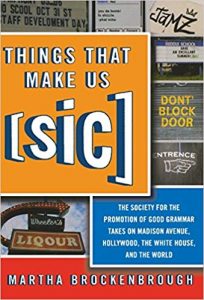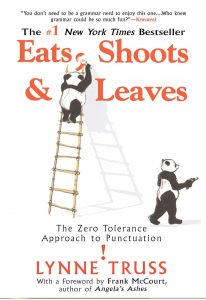National Grammar Day

Though a proud member of the Grammar Police, I’m as guilty as anyone for breaking the rules of grammar and punctuation when necessary. However, I strongly believe it’s important to know what those rules are so you can break them intentionally and not simply through ignorance.

In the past several years, particularly since global travel has become so accessible and the use of cellphones and the internet have become so all-pervasive, there’s been a wholesale butchering of the English language. I can’t help but wonder how our language will evolve, now that we have instant global communication. Will we all end up speaking one global language? Will emojis take over human communication?
This is not to say that the language hasn’t evolved over time — in fact, the English language itself is a hodgepodge of many languages and cultural influences. Language is supposed to evolve as a culture develops, but there are always a few popular words and phrases which simply get under my skin. To my older ear, they are just wrong.
Pet Peeves
In honour of National Grammar Day, March 4th, I’ve added a short listing of some of my pet peeves, in no particular order…

Honing in – The correct term is homing in, like a homing pigeon or a baseball player sliding into the plate. Honing is something you do to sharpen a knife or axe blade.
Is comprised of – A collection of items comprises a group. For example: a collection of people in church singing hymns comprises a congregation. Alternatively, a congregation is composed of a group of people in church singing hymns (or making rude comments under their collective breath when the pastor talks about honing in on the Word of the Lord!)
Verbing nouns – The use of nouns to create new verb forms is increasing. Texting, impacting, even “adulting” for Pete’s sake! (And on a side note, just who the heck is Pete, anyway?)
Misuse of “either” – Using “either” or “neither” before listing three or more items. These words compare only two items, no more.

Misuse of “less” and “fewer” – Less refers to amount. Fewer refers to number. For example: There were fewer people (a smaller number) at the event than expected. There was less water (a smaller amount) in the glass after he drank some.
Irregardless – The word is regardless.
Could care less – Could you indeed? The term is “could NOT care less”, or “couldn’t care less”. If you don’t care at all, saying you “could care less” means that you actually do care, if only a little.
Do you have some personal grammar or punctuation peeves or notable gaffes you’d like to share? Please post a comment below.

Happy National Grammar Day!
Some Resources
Here are a couple of good books on grammar and punctuation at Amazon.com





